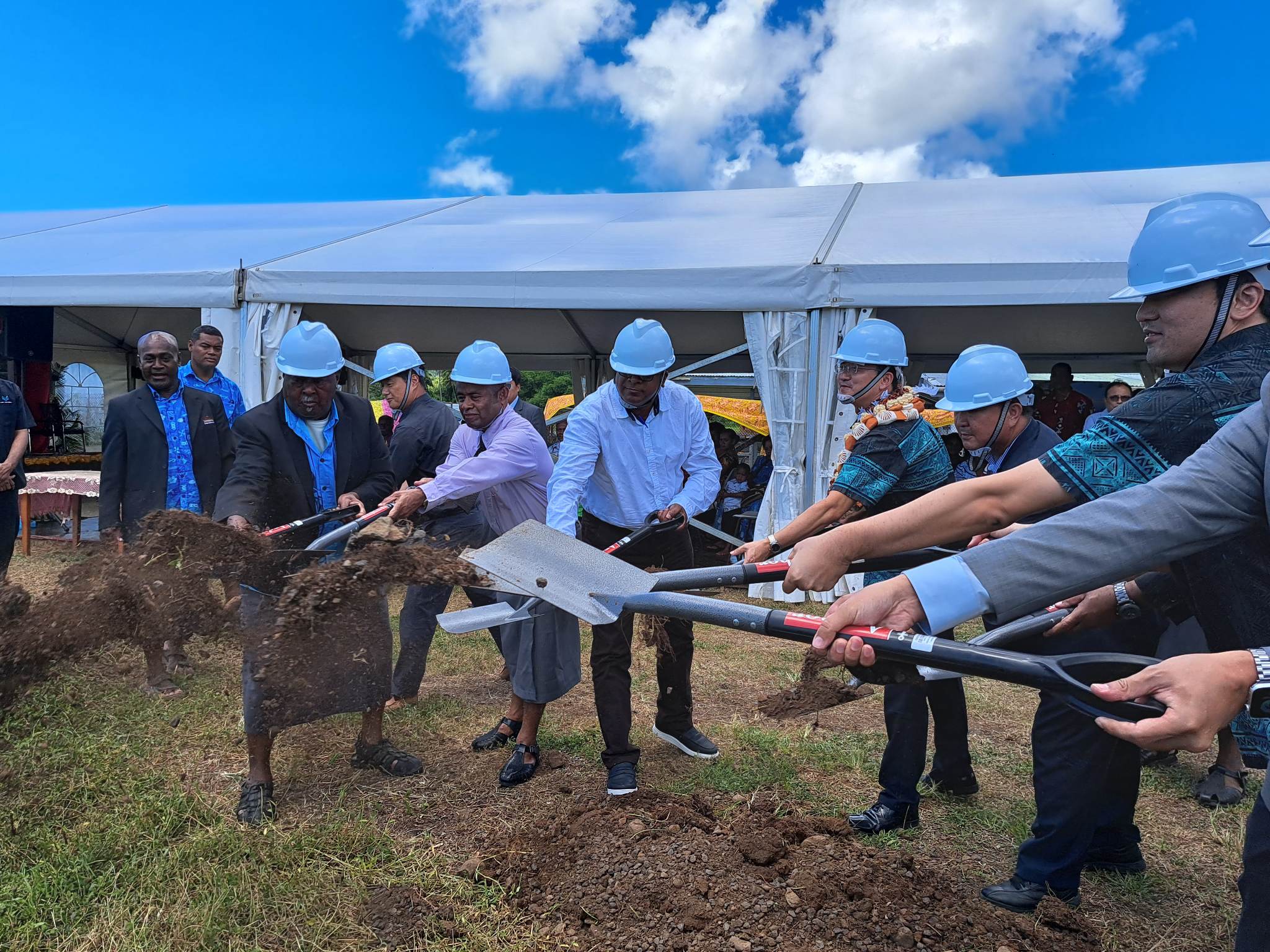Ovalau Agrophotovoltaic Project Set To Benefit Farmers
November 28, 2022

Picture: Minister for Agriculture, Waterways and Environment Dr Mahendra Reddy (3rd from right) with the Korean Ambassador to Fiji H.E. Mr Park Young-kyu during ground breaking ceremony for the Fiji-Korea Agrophotovoltaic Project at Bureta on Ovalau Island
The initiation of the Ovalau Agrophotovoltaic Project is set to reduce the carbon footprint on the island of Ovalau and greatly benefit farmers on the maritime island in the Lomaiviti Group.
The project which is funded by the Korean International Cooperation Agency (KOICA) and implemented by Envelops Co. Ltd is also a milestone achievement for Fiji as the large scale solar project is a first of its kind in the Pacific region.
The Fiji-Korea Agrophotovoltaic Project is aimed at overcoming barriers of financing, technical capacity, and limited availability of land; Agrophotovoltaic (APV) is an innovative system which allows for solar power generation and agriculture to simultaneously co-exist on the same land, which otherwise would be in competition with one another.
While officiating at the ground breaking ceremony for the Fiji-Korea Agrophotovoltaic Project at Bureta on Ovalau Island recently, Minister for Agriculture, Waterways and Environment Dr. Mahendra Reddy said the conventional ground-mounted solar projects on the site would utilize the arable land and position agricultural potential to maximize yield.
“This is a milestone for Fiji and it came about when Ovalau Island was recommended in line with the National Determined Contribution (NDC) of reduction of global greenhouse gas emission goals set under the Paris Agreement, with Ovalau setting their localized NDC at 100 percent through the use of renewable energy on the Island."
Dr. Reddy on behalf of the Government of the Republic of Fiji expressed his sincere appreciation to the people of Bureta for the project site of seven hectares, and also acknowledged the Korean Government, through KOICA, for the technical support and Envelops Co. Ltd for their collaborative efforts as development partners for the project.
“The Bureta site is ideal agricultural land and the community needed agricultural development for the Island’s food security and income generating activities, thus the agrophotovoltaic project was a perfect fit for both solar power generation and agriculture,” said Dr. Reddy.
The APV Agriculture Research and Development and Market Development components will cultivate root crops and vegetables under the tall APV solar panels. Each solar panel will house/shade climate resilient, high-value crops for commercial agriculture such as paprika, tomato, cherry tomato, cabbage, string beans, lettuce, cucumber, eggplant, watermelon, capsicum and root crops.
In addition, Dr. Reddy said the project will also establish a dedicated climate-centric agriculture research station near the project site which will be operated by the Ministry of Agriculture Research and Crop Extension staff. The project will further establish one Research Officer and two technical officers quarters.
The office will include processing sheds, garage, cool storage, a 3-tonne truck and a tractor with implements.
KOICA’s grant contributed a sum of US$4 million to purchase the 5 megawatt hour Battery Energy Storage System (BESS) for the solar photovoltaic component of the project and the other US$4 million is provided as KOICA development assistance project for the Ministry of Agriculture.
“The APV project is expected to yield over 100,000 kilograms of crops in a year – feeding, employing and earning an income for Fijians living in Bureta and across the island’s 27 communities.
“This project is especially for women and youth’s empowerment and creating green jobs that will eliminate inequality and provide a sustainable and resilient source of food and nutrition security," said Dr. Reddy.
The project is focused on making Ovalau island 90 per cent renewable energy efficient whereby solar panels would be constructed over seven hectares of agricultural land in Bureta with the farming of crops to take place under and between them.
The project would use the land sharing concept and would help reduce heat damage to the crops by blocking access to sunlight and reduce damages from drought by minimising solar moisture evaporation.
The project is valued at USD10 million and will be co-financed by the Green Climate Fund, and KOICA.
-ENDS-
